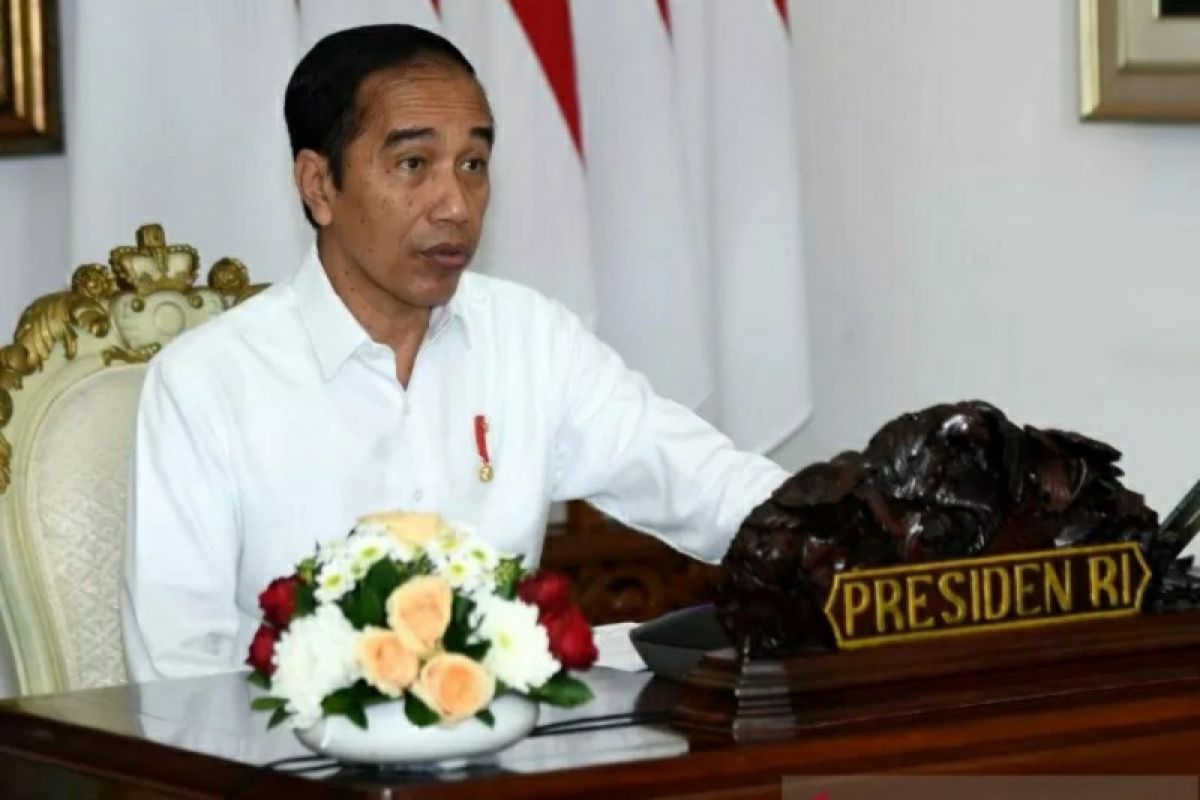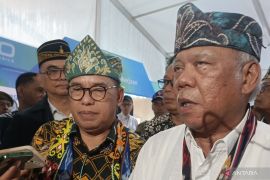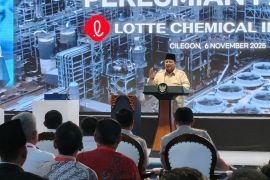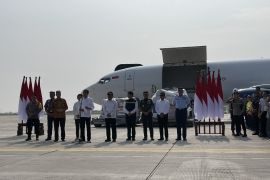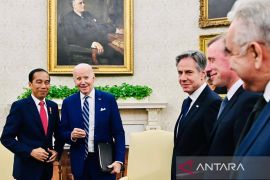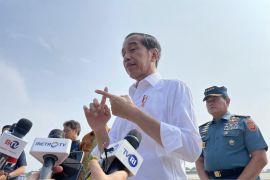I would like to once again emphasize on the application of strict health protocols by mobilizing our resources and ensuring quarantine locations and referral hospitals for our migrant workersJakarta (ANTARA) - President Joko Widodo (Jokowi) highlighted three aspects of specimen testing, handling the return of migrant workers, and expediting production of medical equipment and COVID-19 medications to accelerate the handling of the COVID-19 pandemic in Indonesia.
Jokowi made the statement while opening a limited videoconferencing meeting on accelerating the handling of the COVID-19 Pandemic from the Merdeka Palace in Jakarta, Monday.
In connection with the total improvement in the speed of testing PCR specimens, the head of state had received a report that showed the current capacity to test four to five thousand samples per day for PCR.
President Jokowi believed that the figure was still far from his previously stipulated target of 10 thousand specimens per day.
"According to data from the Task Force, 104 laboratories are currently included in the COVID-19 lab network. I want to ensure that the labs are functioning optimally, although of the 104 labs, 53 referral labs have already conducted examinations, and 51 referral labs have yet to conduct examinations," he stated.
The head of state realized the need for greater attention to be paid for training human resources as well as the lack of test equipment, including for PCR, RNA, and VTM reagents, which he sought for this week.
The second aspect concerns the return of Indonesian migrant workers, which he emphasized should be conducted properly on the field.
"I received reports that the work contracts of some 34 thousand Indonesian migrant workers will end in May and June, and some 8,900 came from East Java, 7,400 from Central Java, 5,800 from West Java, 4,200 from West Nusa Tenggara, and around 2,800 workers from North Sumatra, 1,800 from Lampung, and 500 from Bali," he noted.
The president called to take pertinent precautionary measures to handle their return and arrival at the country's entry points in line with the procedures, including to trace their movements until they reach their hometowns.
The entry points that the president highlighted include the two air entrances of the Soekarno Hatta Airport and Ngurah Rai Airport in Bali, as well as the seaports that often become the entry points for ship crews, including those in Bali, and Tanjung Priok. In the meantime, migrant workers from Malaysia are expected to enter from Batam and Tanjung Balai.
"I would like to once again emphasize on the application of strict health protocols by mobilizing our resources and ensuring quarantine locations and referral hospitals for our migrant workers," he remarked.
The third aspect concerns the report Jokowi had received from the Ministry of Research and Technology/National Research and Innovation Agency that had successfully developed PCR test kits, non-PCR diagnostic test, as well as ventilators and mobile BSL 2.
"I call for the mass production of these innovations, so we no longer need to depend on imported products from other countries," he stated.
Furthermore, the president is optimistic that the production process would commence by May-end or start of June this year.
The head of state conceded to have witnessed significant advancements in plasma testing. Large-scale clinical tests are planned at several hospitals coupled with “stem cell” procedures to replace damaged lung tissue.
The president also witnessed advancements in research on genome sequencing that is a crucial step to finding a COVID-19 vaccine in Indonesia.
"I call for all research and innovation results to be fully supported by state-owned enterprises and the private sector," the president noted.
Related news: COVID-19 Task Force receives Rp2.06 trillion for outbreak control
Related news: Govt to take precautionary measures for returning migrant workers
Related news: Government prepares post-COVID-19 pandemic recovery programs: VP
Translator: Hanni S/Aria Cindyara
Editor: Gusti Nur Cahya Aryani
Copyright © ANTARA 2020
